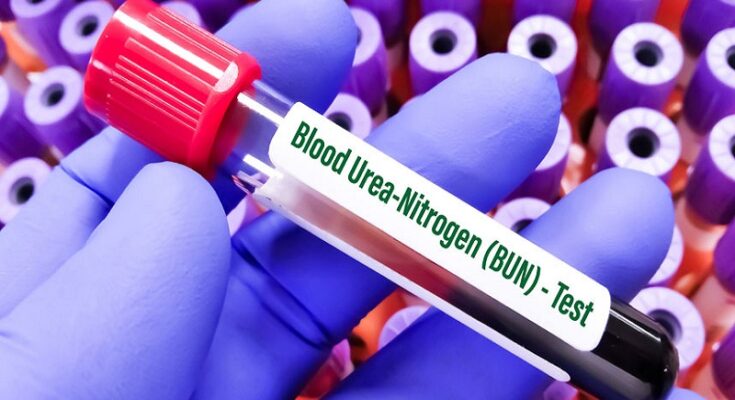The BUN (Blood Urea Nitrogen) test is a vital medical examination that assesses kidney function by measuring urea nitrogen levels in the blood. It helps medical professionals determine kidney functionality, considering variations based on age and gender. Abnormal values may signal issues like kidney or liver damage.
Before exploring the BUN test, it is essential to emphasise the significance of health insurance online. Health, one of life’s aspects beyond complete control, underscores the importance of health insurance coverage. Now, let’s delve into the BUN test and its intricacies.
BUN Test: A Comprehensive Overview
The BUN test measures urea nitrogen levels in the blood to assess kidney function. Elevated levels may indicate kidney or liver issues. Regular testing is crucial for those at risk or experiencing symptoms like itching, sleep disturbances, muscle cramps, or swelling.
Who Needs A BUN Test?
Individuals with kidney disease risk factors, such as diabetes, family history, heart conditions, or high blood pressure, may undergo routine BUN tests. Symptoms like itching, sleep disturbances, abnormal urine frequency, muscle cramps, or swelling might prompt BUN testing. It is crucial for early detection, especially when kidney diseases show no early symptoms.
Purpose Of BUN Test
Primarily conducted to evaluate kidney function, the BUN test is often paired with other blood tests like creatinine. The test can diagnose conditions such as malnutrition, liver damage, dehydration, impaired circulation, gastrointestinal bleeding, heart failure, urinary tract obstruction, and more.
Procedure For BUN Tests
A BUN test involves drawing a small blood sample. After cleaning the arm, a sterile needle is used to draw blood, causing minimal discomfort. The sample is sent to a laboratory for analysis, with results reported in milligrams per deciliter (mg/dL). Typical ranges vary by age and gender.
Interpreting Bun Test Results
Normal BUN levels range from 7–20 mg/dL for youngsters (ages 1 to 17), 6–21 mg/dL for adult females, and 8–24 mg/dL for adult males. Elevated or reduced levels may indicate various conditions. Dehydration, diet, liver failure, or certain medications can affect results. Lowering BUN levels can be achieved through proper hydration and a low-protein diet.
Health Insurance And BUN Tests
In India, where medical costs can be substantial, health insurance online plays a pivotal role. Insurance providers offer comprehensive health insurance plans, including coverage for critical illnesses, family floaters, and COVID-19. Utilising their health insurance premium calculator ensures convenient premium determination, and the entire process, from purchase to renewal, can be done online for a seamless experience, enjoying all the health insurance benefits. *
The BUN test is a vital tool for assessing kidney function, aiding in the early detection of potential issues. Prioritising Bajaj Allianz group health insurance, especially in a nation like India with rising medical costs, is a prudent choice. Diverse health insurance plans provide financial security during medical emergencies, ensuring individuals can access quality healthcare without significant financial burden.
Make sure you do the Bajaj Allianz group health insurance process on time. Regular BUN tests and the protective shield of health insurance contribute to a proactive and secure approach to healthcare management.
Subscribe to Bajaj Allianz General Insurance YouTube Channel here!
* Standard T&C Apply
Insurance is the subject matter of solicitation. For more details on benefits, exclusions, limitations, terms, and conditions, please read the sales brochure/policy wording carefully before concluding a sale.




